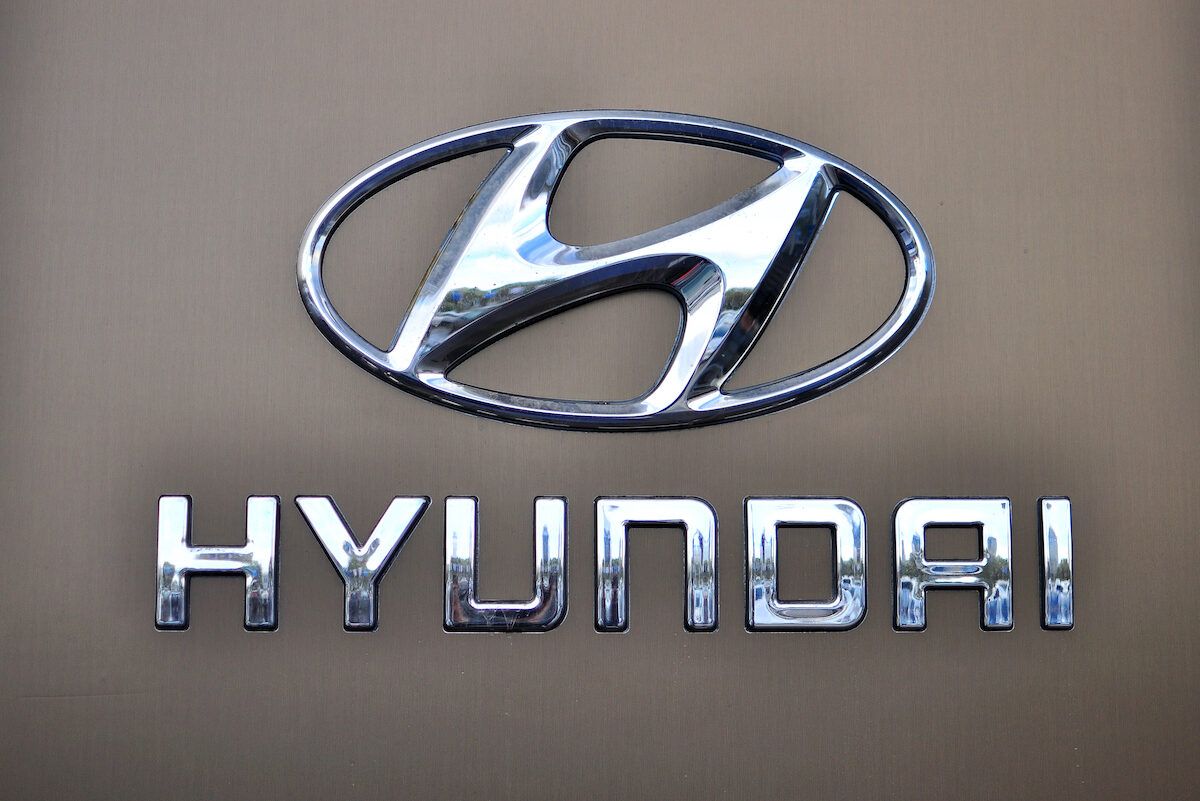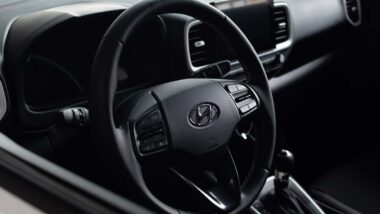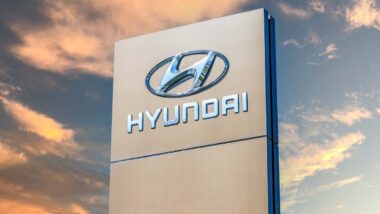
Update:
- A judge dismissed a class action lawsuit filed by a group of vehicle owners against Hyundai Motor Co. in a California federal court.
- The class action lawsuit claimed a number of Hyundai and Kia model vehicles contained an engine defect that caused them to use an excessive amount of oil.
- The vehicle owners argued the alleged defect, in addition to costing them money for the excess oil, caused the vehicles to stall and eventually fail.
- Court approval of the dismissal was not required as the class had not been certified nor proposed to be certified for purposes of a settlement, according to court documents.
Hyundai excessive oil consumption class action lawsuit overview:
- Who: A group of Hyundai and Kia vehicle owners are suing Hyundai Motor Co.
- Why: The drivers allege numerous models of Hyundai and Kia vehicles are equipped with defective engines that use excessive amounts of oil, stall and eventually fail.
- Where: The lawsuit was filed in a California federal court.
(April 20, 2022)
Hyundai makes numerous models of Hyundai and Kia brand vehicles with defective engines that use excessive amounts of oil, costing their owners huge sums of money, a new class action lawsuit alleges.
On Apr. 12, eight owners of Hyundai and Kia brand vehicles filed a class action lawsuit against Hyundai Motor Co. in a California federal court, alleging violations of federal warranty laws.
The Hyundai excessive oil consumption lawsuit alleges that numerous models of the automaker’s vehicles are equipped with defective Nu, Gamma, Theta, Lambda and Kappa engines.
The defective engines allegedly use excessive amounts of oil, stall and eventually fail. The drivers say Hyundai should have issued a recall for the vehicles a long time ago but hasn’t.
As a result, thousands of Hyundai and Kia owners and lessees have allegedly been forced to constantly check the oil levels, and oil must be added to the engines more frequently than even the owner’s manuals recommend, Car Complaints reports.
The engine issue has flow-on effects like reduction in engine lubrication due to crankshaft submersion and gaskets and seals damage, which leads to oil leaks.
The plaintiffs also claim that oil in their vehicles migrates to places where it shouldn’t be, damaging the combustion and exhaust systems.
This allegedly causes “abnormal wear of engine parts, oversaturation of carbon and deposits of oil sludge, ultimately requiring a costly engine rebuild or replacement.”
Automaker should honor warranty claims outside terms, Hyundai class action says
The plaintiffs allege that Hyundai should honor customers’ warranty claims even when the warranties have expired.
According to the lawsuit, Hyundai can’t adequately repair the oil consumption problems and doesn’t offer any reimbursement for out-of-pocket costs caused by the issue.
The class action states customers must suffer through long wait times for replacement parts, “and in most cases do not receive required engine replacements.”
The cars with the allegedly faulty engines include the 2012-2020 Hyundai Elantra, 2009-2018 Hyundai Genesis Coupe, 2019-2021 Hyundai Kona, 2020-2021 Hyundai Palisade, 2010-2012 and 2015-2021 Hyundai Santa Fe, 2009-2010 and 2015-2021 Hyundai Sonata, 2011–2021 Hyundai Sonata Hybrid, 2010-2013 and 2015-2021 Hyundai Tucson, 2011-2021 Hyundai Veloster, 2020-2021 Hyundai Venue, 2010-2021 Kia Forte, 2017-2020 Kia Niro, 2011-2020 Kia Optima and Optima Hybrid, 2012-2021 Kia Rio, 2011-2020 Kia Sorento, 2012-2021 Kia Soul, 2011-2020 Kia Sportage, 2018-2021 Kia Stinger and 2022 Kia K5.
Meanwhile, Hyundai has expanded its recall of vehicles with an exploding seat belt part issue that has caused multiple injuries to include 6,240 of its 2021-2022 Elantra and 2020 Accent vehicles.
The plaintiffs are represented by Nye, Stirling, Hale & Miller LLP, Sauder Schelkopf LLC and Walsh, PLLC.
The Hyundai Oil Consumption Lawsuit is Cho, et al., v. Hyundai Motor Company, LTD., et al. in the U.S. District Court for the Central District of California.
Are you one of the drivers affected by an allegedly faulty Hyundai engine? Let us know in the comments!
Don’t Miss Out!
Check out our list of Class Action Lawsuits and Class Action Settlements you may qualify to join!
Read About More Class Action Lawsuits & Class Action Settlements:















3,221 thoughts onHyundai class action over excessive oil consumption dismissed
I have a 2015 Sonata that’s having the same issues with the oil consumption, now my car is currently at Hyundai because it just shut off no warning no lights on just shut off. Thank god there was no traffic because it could have been a bad accident.
I just bought a used 2008 Sonata from the original owner on 6/10/22 The car ran fine for 3 days, then developed an engine knock. I had it towed to my mechanic here in my town and he told me that he thought the engine was toast. The lady I bought it from said the engine used some oil, but in the 3 days It was driven after I bought it the oil level never went below full. I’m thinking that the previous owner most likely ran the engine without oil and damaged the engine. It would be nice for Hyundai step up to the plate and help out with this problem, but I have my doubts that will ever happen. The odometer reading on this car is 140K. The engine should not be bad at that mileage. HELP!!!!
I am having this same problem. My engine ended up locking up, they replaced it January 2020 and it’s still losing oil like crazy! But they won’t fix it again because the new engine “it’s out of warranty.”
Exactly the problem I M having. They have done nothing to fix the problem in the “new” engines, so they are destined to fail too. Mine randomly shuts down while driving too
My 2015 Sonata GL 2.4L had the engine replaced by Hyundai after a failed oil consumption test in 2019, and guess what…the replaced engine just died while driving down the highway at 60mph. There was a loud knocking sound and then the engine just shut down. After the car sat for about 10 minutes, it started and was gently drove straight to the dealer. The check engine light never came on when this happened, and the dealer found no codes indicating any failures. What they did find is that there was no oil on dipstick, and the car needed 3.5 qts to get back to full. I had an oil change just over 2k miles and 2 months prior. The dealer submitted a Prior Approval request to Hyundai for oil consumption test, and I drove home with the full amount of oil. I checked when I got home and it was right on the full line. After driving only 237 miles the car was already down half a court, so I called dealer and told them to relay that info to Hyundai as well. I got the call today from the dealer, and Hyundai said my replacement engine was only good for 1 year and thus out of warranty. I stated that the replacement engine is covered by previous settlement and has lifetime warranty, but as expected they said that is only for Connecting Rod Bearing failure. Hyundai didn’t give a crap about the oil burning or the fact that the oil burning. I am no mechanic, but all this oil burning will eventually lead to destruction of the engine. The dealer service advisor told me all i can do is keep driving, spend a fortune on oil, and hope the engine seizes for what Hyundai considers the right reason. I guess that’s all I can do, that and hope the next time it suddenly shuts down while driving I don’t get killed by another motorist.
Have a 2018 Hyundai Tucson an it eats oil. My dealship had us get extended warranty. Have taken it back to dealer with complaints of excessive oil usage. Been told that they know they burn oil. Only 31k miles relatively new car. Should not burn oil. It’s Not Right. Also noise in motor they supposedly can’t hear. This needs to be made Right..
I thought I was losing my mind. I have been putting two to threes quarts of oil in my 2017 Hyundai Santa Fe, almost every two weeks.
I have a 2017 Santa Fe and will get a full synethic oil change and after 1800 miles the oil light can comes on. I have been having this problem for months now
2017 Sonata, massive oil consumption. Hyundai will not start oil consumption for second owner past 5 Yr 60k. I got screwed unless the result of this lawsuit forces a recall.
My 2014 Veloster Turbo is losing approximately 1 to 1 1/2 qt or oil per 500 miles. I had my car checked numerous time by Hyundai prior to the warranty running out and was told the oil is blowing back through the turbo but they would not fix the problem since the oil loss was at an acceptable level per Hyundai’s guidelines.
Hyundai 2013 elantra oil consumption started at 110k kms
My 2017 Elantra is burning oil like crazy. Just over 100k miles. Started a oil consumption text today. I would like to join this group.